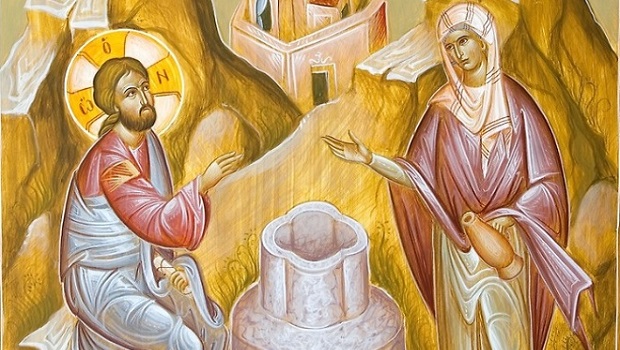Theodoros Ziakas
The question ‘Why did Christianity triumph?’ is the same as ‘Why did the Greeks become Christians?’ Identifying the two questions in this way is not an arbitrary choice. Had the Greeks not become Christian, then neither would the Romans. Given the rejection of the Jews and the indifference of the collectivist peoples of the East, there would have been no Christianity. This organic contiguity makes the question ‘Why did Christianity triumph?’ the fundamental problem of Greek identity.
1. The modernity of the question
Over the Christian centuries people generally saw nothing out of the ordinary in the triumph of Christianity: the Greeks became Christian because the old pagan religion was false and Christianity was the only true religion. The ‘baptism’ of Hellenism has become a problem only in more recent times, when, for enlightened people, Christianity was seen as the foundation of hated Medieval despotism: ‘How could such a cultured spirit as that of the Greeks become subject to Christian obscurantism?’
If we equate ‘Medieval obscurantism’ with Christianity, three possible answers present themselves. The first is that Greeks became Christian through some form of duress or by force. The second is to differentiate what we mean by ‘Christianity’, to say that in the beginning it was good but then went wrong. The third is to differentiate what we mean by Hellenism, to say that good Hellenism was in decline and, at a difficult time for it, bad Christianity caught it napping.
A consequence of the second view is Christian fundamentalism: that we should ‘cleanse’ Christianity of later additions and alterations. In particular, we should get rid of Greek alterations and return to the Christianity of the ancient Church. This fundamentalist de-Hellenization and de-Romification of the Church was at the heart of Protestantism. It is very likely that the success of the modernist choice, which in chronological terms succeeded the Protestant one, is linked to the inability of the Reformation to entirely escape the clutches of collective despotism. The difference which Protestantism achieved, however, by the introduction of the individual/personal relationship between us and God, allowed for the promotion of the rift with Medieval collectivism from much more radical positions (This is where we find the basic of Max Weber’s theory on the roots of capitalism in the spirit of Protestantism).
The consequence of the third possibility, that Christianity caught the Greeks at a bad time, is paganistic fundamentalism. However, as in the above instance of Protestantism, this was not really about a return – to ‘good’ Christianity or ‘good’ Hellenism, as the case may be. The result was modernity, a new culture, a new historical form of world order. The focus of modernity on nature may seem to resemble paganism, but actually doesn’t. Unlike the faith of the ancient Greeks, it is not the cosmos which is the supreme value/model. This would rather be History, at the center of which is the human element. By rejecting the Middle Ages, modernists have undermined both God and the cosmos. They have moved from the ancient focus on the cosmos and the Medieval focus on God to a focus on ourselves, the human person.
So the answers closely connected to our subject are the first and the third. Both accept that Christianity imposed such a deep transformation on the Greeks that, essentially, they ceased to be Greeks at all. The conclusion of both these approaches is one and the same: there never was Christian Hellenism. It is an imaginary construct, an invention of modern Greek nationalism.
Source: pemptousia.com
ABOUT THE ORTHODOX CHRISTIAN NETWORK
Orthodox Christian Network (OCN) is a 501(c)3 and an official agency of the Assembly of Canonical Bishops of the United States of America . It is a recognized leader in the Orthodox Media field and has sustained consistent growth over twenty-two years. We have worked to create a community for both believers and non believers alike by sharing the timeless faith of Orthodoxy with the contemporary world through modern media. We are on a mission to inspire Orthodox Christians Worldwide. Click to signup to receive weekly newsletter.
Join us in our Media Ministry Missions! Help us bring the Orthodox Faith to the fingertips of Orthodox Christians worldwide! Your gift today will helps us produce and provide unlimited access to Orthodox faith-inspiring programming, services and community. Don’t wait. Share the Love of Orthodoxy Today!
OCN has partnered with Pemptousia. A Contemporary post-modern man does not understand what man is. Through its presence in the internet world, Pemptousia, with its spirit of respect for beauty that characterizes it, wishes to contribute to the presentation of a better meaning of life for man, to the search for the ontological dimension of man, and to the awareness of the unfathomable mystery of man who is always in Christ in the process of becoming, of man who is in the image of divine beauty. And the beauty of man springs from the beauty of the Triune God. In the end, “beauty will save the world”.




0 Comments